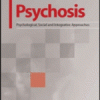Role: Chair
The Hearing Voices Network exists to: raise awareness of voice hearing, visions, tactile sensations and other sensory experiences; To give men women and children who have these experiences an opportunity to talk freely about this together; To support anyone with these experiences seeking to understand, learn and grow from them in their own way.
Role: Honorary Lecturer in Clinical Psychology
UEL’s Clinical Psychology programme is characterised by a distinctive approach to its subject matter. As well as providing teaching on the major approaches to clinical psychology theory and practice, it examines the assumptions which inform scientific activity and the problems in applying philosophies and methods from the natural sciences to human behaviour.

Role: Honorary Research Fellow in the School of Medicine, Pharmacy and Health
The school’s hallmark is innovation at local and international levels and we seek to make a difference in the quality of care provided to people. Our research themes cut across boundaries and include clinical topics, particularly around earlier diagnosis and intervention, care pathways across organisational boundaries, health policy and economics and the medical humanities.

Role: Visiting Research Fellow
The Centre for Community Mental Health (CCMH) is a training, education and research unit. It is part of the Centre for Health and Social Care Research, a Centre of Research Excellence based at the Faculty of Health. We are part of an international network of expertise in mental health practice and service innovation, and work to improve mental health services and promote opportunities for people with severe and enduring mental health problems.
 Mad in America
Mad in America
Role: Foreign Correspondent
The site is designed to serve as a resource and a community for those interested in rethinking psychiatric care in the United States and abroad. We want to provide readers with news, stories of recovery, access to source documents, and the informed writings of bloggers that will further this enterprise. The bloggers on this site include people with lived experience, peer specialists, psychiatrists, psychologists, social workers, program managers, social activists, attorneys, and journalists.
 Psychosis: Psychological, Social and Integrative Approaches
Psychosis: Psychological, Social and Integrative Approaches
Role: Member of the Editorial board of the Journal
This journal fills an important gap in mental health literature, namely research focused on the psychological treatments of psychosis (e.g. cognitive-behavior therapy, psychodynamic therapy, family therapy etc.) and the psycho-social causes of psychosis (e.g. poverty, drug abuse, child abuse and neglect, distressed families, urban living, discrimination, rape, war combat etc.).
 Beside Mental Health Community Project
Beside Mental Health Community Project
Role: Patron
Beside is a Tower Hamlets–based charity working with people who have recurrent or long term mental health difficulties. Our aim is to enable our members to rediscover their inner resources and develop strategies to support their mental health and wellbeing.

Role: Member of Expert Group of Rebuilding Shattered Lives – St Mungo’s.
Rebuilding Shattered Lives is a campaign launched by St Mungo’s to raise awareness, showcase good practice and drive innovation on the issues faced by homeless and vulnerable women. St Mungo’s opens doors for homeless people. Mainly based in London and the South, we provide emergency shelter emergency, support towards recovery and help to prevent rough sleeping. We run over 100 projects and help thousands of homeless people make life changes every year.






 Psychosis: Psychological, Social and Integrative Approaches
Psychosis: Psychological, Social and Integrative Approaches Beside Mental Health Community Project
Beside Mental Health Community Project

